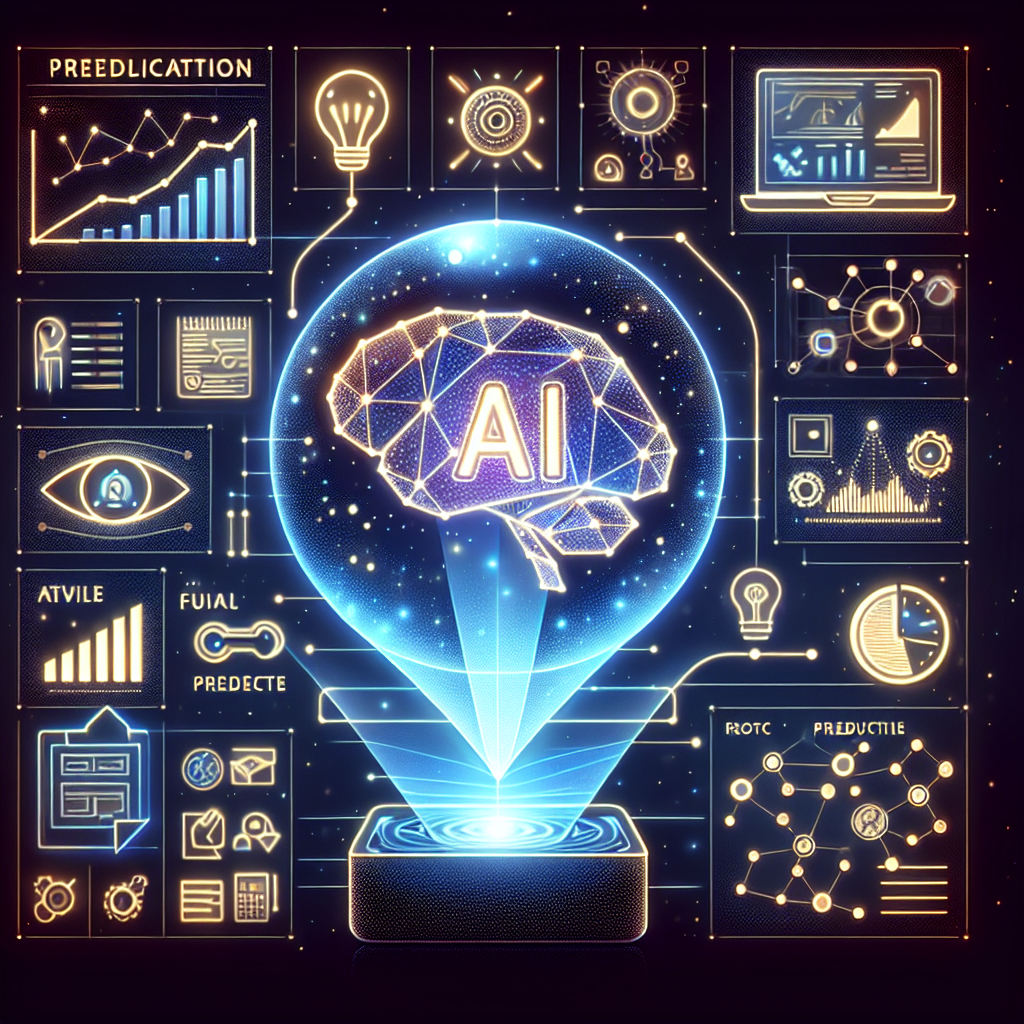In recent years, there has been a significant shift in the way project management is being carried out, with the adoption of artificial intelligence (AI) playing a crucial role in enhancing predictive project management. AI has the potential to revolutionize project management by providing insights and predictions based on data analysis, helping project managers make informed decisions and improve project outcomes. In this article, we will explore the role of AI in predictive project management and its impact on the future of project management practices.
The Role of AI in Predictive Project Management
AI has the ability to analyze large amounts of data and identify patterns and trends that human project managers may not be able to detect. By using machine learning algorithms, AI can predict potential risks, delays, and issues that may arise during the course of a project. This predictive capability can help project managers proactively address problems before they escalate, leading to better project outcomes.
One of the key ways AI is being used in predictive project management is through the use of predictive analytics. Predictive analytics leverages historical project data to forecast future project performance, identify potential bottlenecks, and optimize project schedules. By analyzing past project performance and identifying patterns, AI can help project managers make more accurate predictions about project timelines and resource allocations.
Another important role of AI in predictive project management is the automation of routine tasks. AI-powered project management tools can streamline project workflows by automating repetitive tasks such as scheduling, resource allocation, and progress tracking. This automation not only saves time and reduces the risk of human error but also allows project managers to focus on high-level strategic decisions that require human judgment and creativity.
AI can also enhance communication and collaboration among project team members. AI-powered project management tools can analyze communication patterns within project teams and provide insights on how to improve collaboration and information sharing. By identifying communication bottlenecks and facilitating better communication, AI can help project teams work more efficiently and effectively towards project goals.
Furthermore, AI can improve project risk management by analyzing historical project data and identifying potential risks early on. By flagging potential risks and suggesting mitigation strategies, AI can help project managers anticipate and address risks before they impact project outcomes. This proactive approach to risk management can help project managers avoid costly delays and disruptions, leading to more successful project delivery.
Overall, the role of AI in predictive project management is to enhance decision-making, improve project outcomes, and streamline project workflows. By leveraging the power of AI to analyze data, predict outcomes, and automate routine tasks, project managers can make more informed decisions, optimize project schedules, and mitigate risks more effectively.
FAQs
Q: How can AI help project managers make better decisions?
A: AI can help project managers make better decisions by analyzing data, identifying patterns, and predicting outcomes. By providing insights based on data analysis, AI can help project managers make informed decisions that lead to better project outcomes.
Q: What are some examples of AI-powered project management tools?
A: Some examples of AI-powered project management tools include Asana, Trello, and Monday.com. These tools use AI algorithms to automate tasks, analyze data, and provide insights to help project managers optimize project workflows.
Q: How can AI improve project risk management?
A: AI can improve project risk management by analyzing historical project data, identifying potential risks, and suggesting mitigation strategies. By proactively addressing risks, AI can help project managers avoid costly delays and disruptions.
Q: What are the benefits of using AI in predictive project management?
A: Some benefits of using AI in predictive project management include improved decision-making, optimized project schedules, enhanced communication and collaboration, and proactive risk management. AI can help project managers make more informed decisions, streamline project workflows, and mitigate risks more effectively.
In conclusion, the role of AI in predictive project management is to enhance decision-making, improve project outcomes, and streamline project workflows. By leveraging the power of AI to analyze data, predict outcomes, and automate routine tasks, project managers can make more informed decisions, optimize project schedules, and mitigate risks more effectively. As AI continues to evolve and mature, its impact on project management practices is likely to grow, leading to more efficient and successful project delivery.

